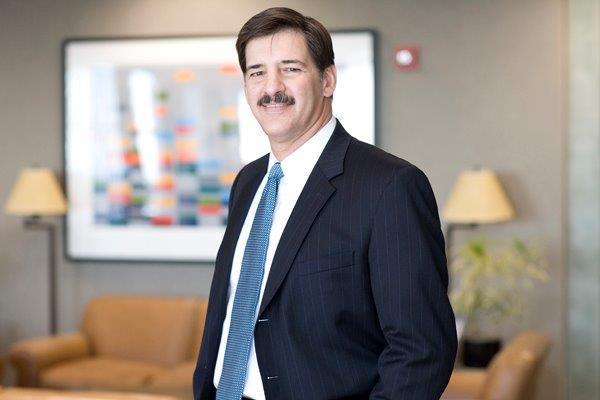
A Naval Academy graduate, Vince Vlasho served seven years active duty as an intelligence officer, was deployed on the front lines, came to Accenture Federal Services directly from active duty and eventually retired from the Navy Reserve. Decades later, his military experience still informs and personalizes his work.
“It gives you another level of ownership and attachment to the problem than you get if you don’t have that background,” he said. “… And I think one of the particular skill sets I bring to this job is the ability to understand (Defense Department), understand the mission, understand Accenture’s capabilities and how we can best apply those capabilities to support mission performance.”
Vlasho was named senior managing director in November, having previously served as the company’s defense agencies sector lead and as the Navy client account lead. Vlasho now oversees client delivery, sales, growth and marketing activities for federal defense, intelligence and the Department of Veterans Affairs customers.
Vlasho views AFS as different from many other defense contractors. The company has many employees with a strong DOD background, either through prior military and civil government service or through a long of history of client service delivery work for defense customers.
“I think we’re very good at taking that model and applying what we refer to internally as a powered by Accenture model,” Vlasho said.
AFS is an organization within the larger $1 billion Accenture LLP, equipping the federal services arm with a greater depth of expertise and capabilities than if it stood alone.
“It’s not just me and my defense practice and group serving the DOD, but I’ve got 400,000 people of Accenture behind you I can tap into as needed,” Vlasho said.
Vlasho describes Accenture as a “different kind of defense contractor” with not only a strong delivery track record but also a “pragmatic innovation agenda for bringing new ideas in the digital domain to clients.”
“I think we can bring ideas that are going to have real value, as opposed to maybe prototypes that are interesting but maybe you don’t go anywhere,” he said. “I think we do a really nice job at being able to understand problems in the Department of Defense and then bring our broader Accenture capabilities to DOD to help them solve some of their most pressing problems,” Vlasho said.
Vlasho is focusing on AFS’s digital agenda as a premier provider of cloud services to the Pentagon.
“Once you’re in the cloud space, I think that mastery leads to the (artificial intelligence) realm, and then also bringing the capabilities that go along with that,” he said.
Internally, Accenture refers to “applied” intelligence rather than artificial intelligence, he said.
“The distinction we’re making by doing that, even though it may seem small, is huge because we want to use the potential of artificial intelligence to actually solve real-world problems,” Vlasho said.
For example, Vlasho’s team might help a customer in the logistics business explore the use of AI to predict demand for various goods and services and anticipate back orders. AFS developed a complementary dashboard to enable the client to better understand logistics supply issues and the impact on force readiness.
Accenture has a long history of innovation and bringing new technologies to its clients, he said, but there is also wisdom in knowing how to apply them not for their own sake but to serve a client’s specific needs.
“We bring the pragmatic aspect up to the problem as well, which is where we bring the new ideas, and we know how to make sure we can implement them to achieve some business outcome for our clients,” he said.
While Accenture has traditionally been strong in its large back-office programs, Vlasho wants to augment that by “(getting) closer to the pointy end of the spear” with work that directly impacts client missions.
Accenture’s mobile-enabled work at VA, for example, includes helping veterans schedule appointments, stick with a monitor or work through a treatment regimen. With another client, the company’s work includes tapping into open source intelligence — the vast amounts of dormant data available through social media, news sources and other areas that can be valuable in intelligence.
Accenture’s studios focus on a service design approach, meaning new approaches and techniques are built around a framework in which human beings, rather than technology, are at the center. Clients come to the studio and work with Accenture in real time to analyze and solve and develop solutions to problems, making tweaks and adjustments in partnership.
“Those who participated were just very, very complimentary of the process they went through and, probably more importantly, complimentary of the final solution that we created for them and built,” Vlasho said. “They said that it worked only because of the service design approach.”

